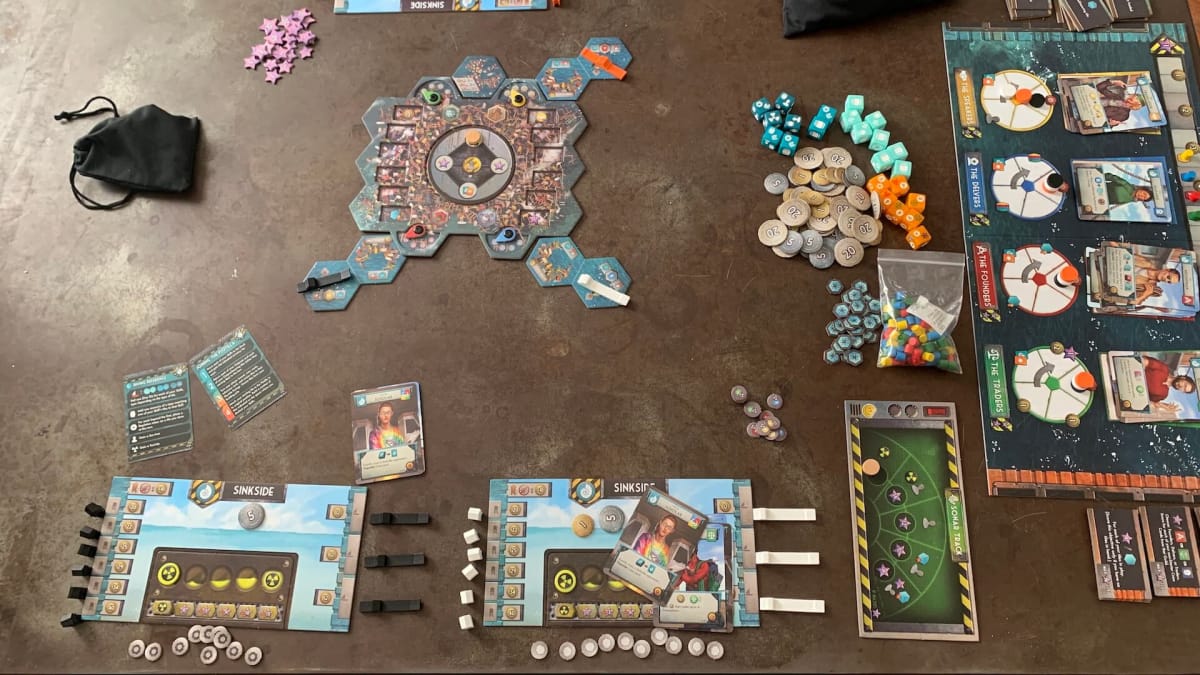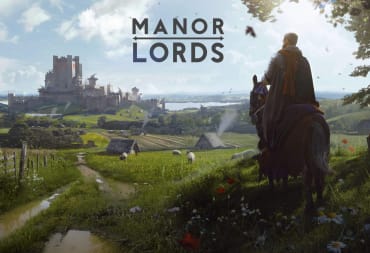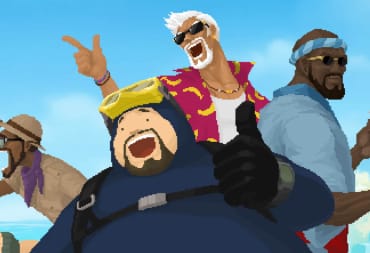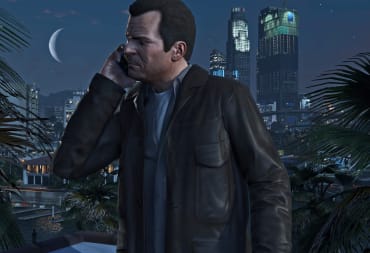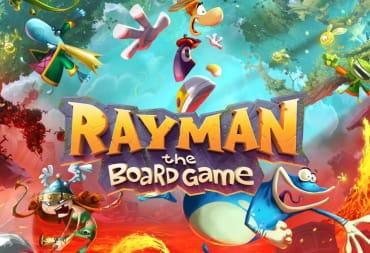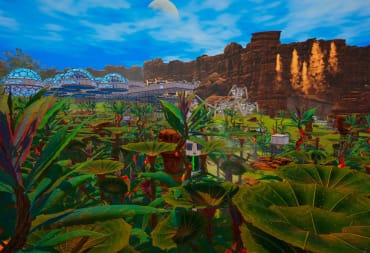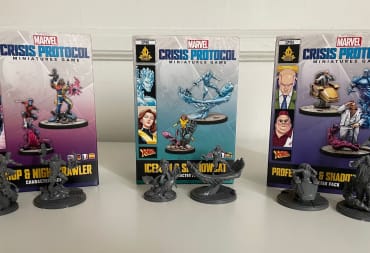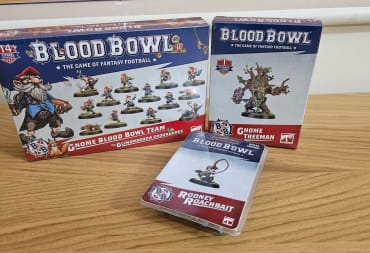Water. Water all around you. That's all you've ever known. But now that you're running your own crew, you wonder if things could be different. You've heard about skiffs going out and hauling up useful resources, and some of them even pull up incredible artifacts from life before the bombs. Could you be the one to raise your little patch of ocean up, creating great landmasses that connect to the Flotilla? That's the big idea behind Flotilla by WizKids, a nautical-themed exploration game for three to five players.
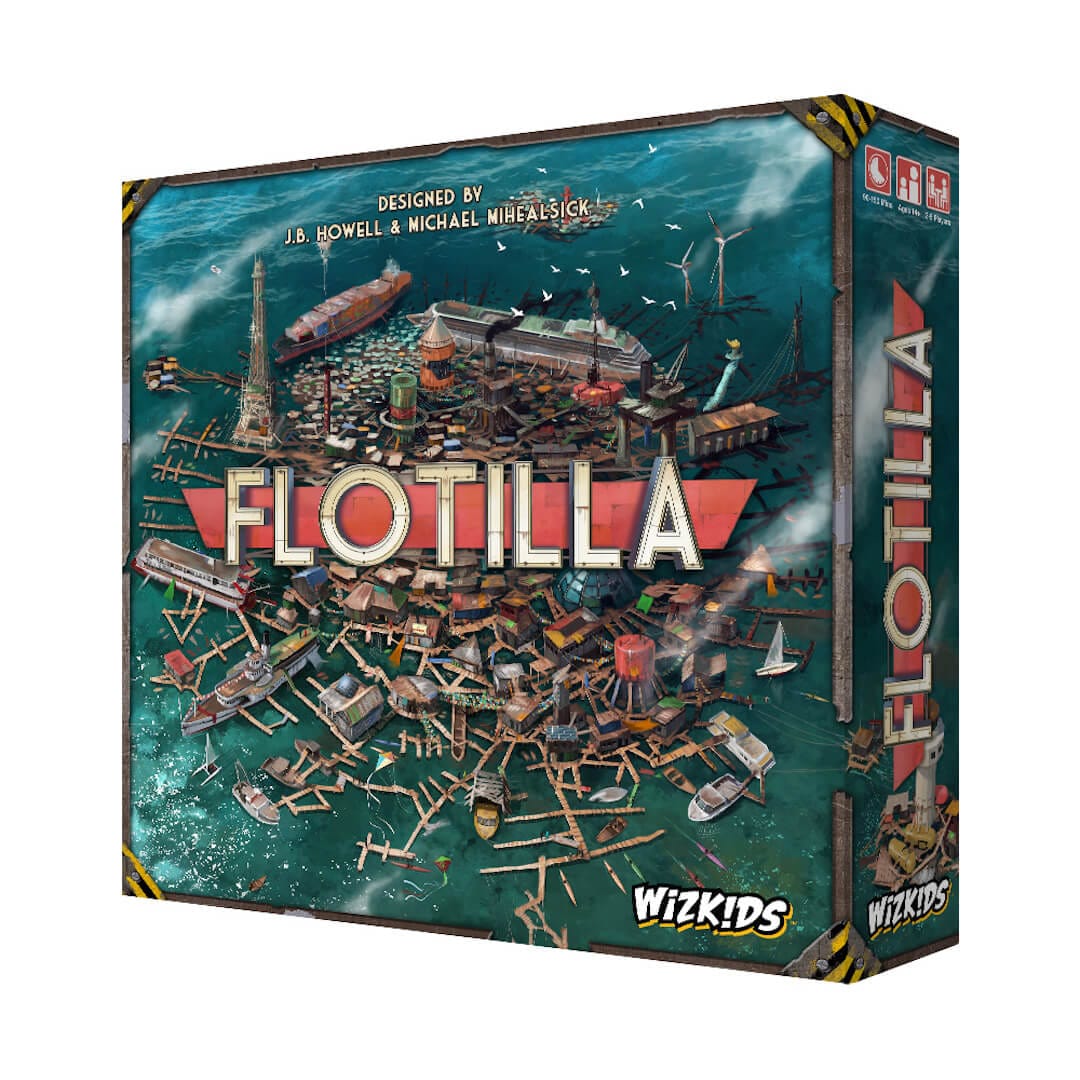
Flotilla is set after a massive atomic bomb destroys the Bikini Atoll and wrecks the earth's mantle, causing massive global flooding. You play as fleet captains ten years after the disaster, trying to mitigate radiation, explore the risen seas for artifacts and resources, and eventually turn your fleet of skiffs into floating cities rising above the seas. The player with the most victory points at the end of the game wins.
To do so, players each start with a deck of starting "founders;" these are characters that do a simple action — from exploring new waters to delving for resources and trading with the market. Through all of its varied mechanics, Flotilla feels like a "greatest hits" of board game mechanics. You manage a hand of cards to get the most out of every turn. You lay tiles down on your section of the table to discover the ocean. You roll dice to collect resources. You sell those resources to a marketplace that adjusts in real time based on supply and demand. And you attempt to curry favor with one of the four local guilds in the game, adding more cards to your hand.
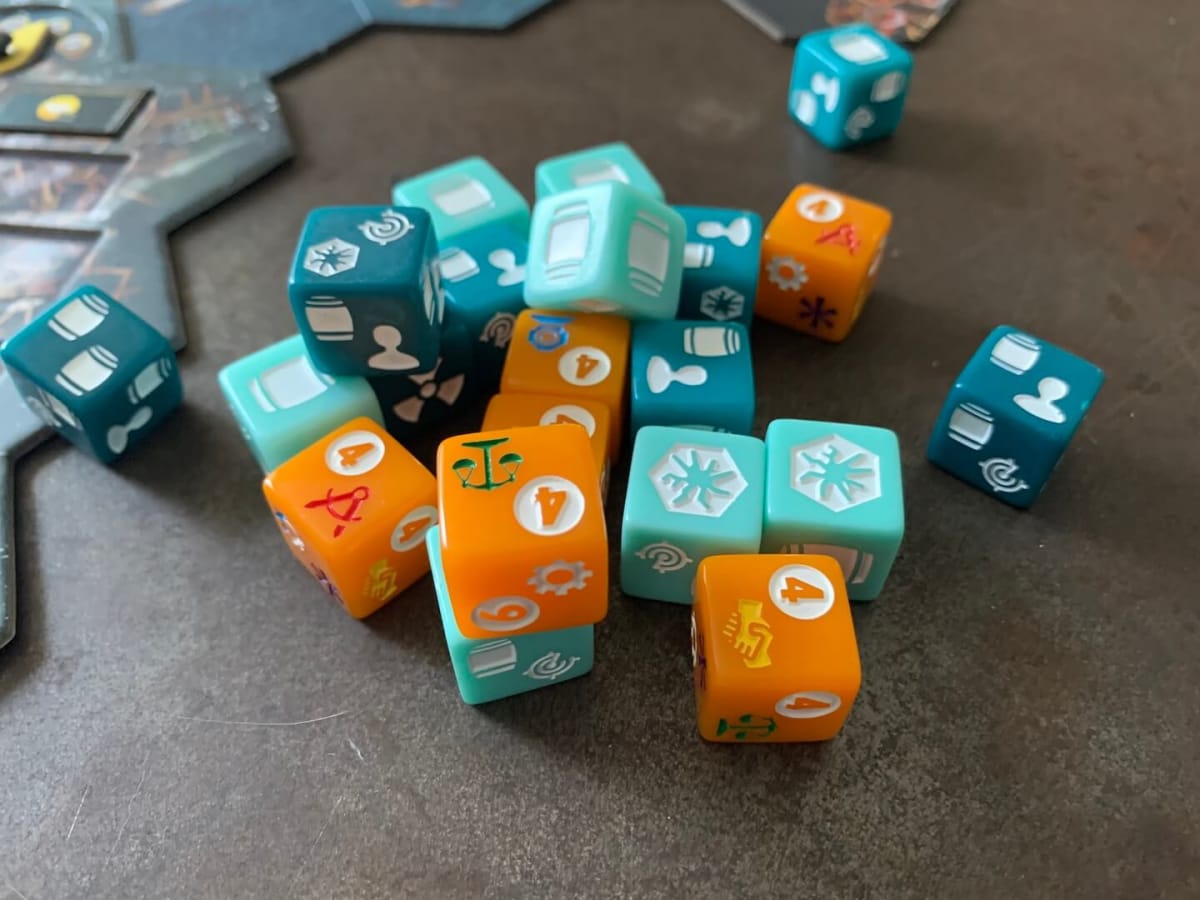
But the game's big twist comes from its two fairly distinct modes of play. Each player starts on the "sinkside," meaning they're focused on discovering what lies under the ocean. But at any time in the game, players can declare they're going "skyside" and they flip all of their cards, pull off all their ocean tiles, and begin building structures on the flip side of their ocean tiles. From that moment on, a skyside player's game isn't about discovery, it's more about market manipulation and resource management.
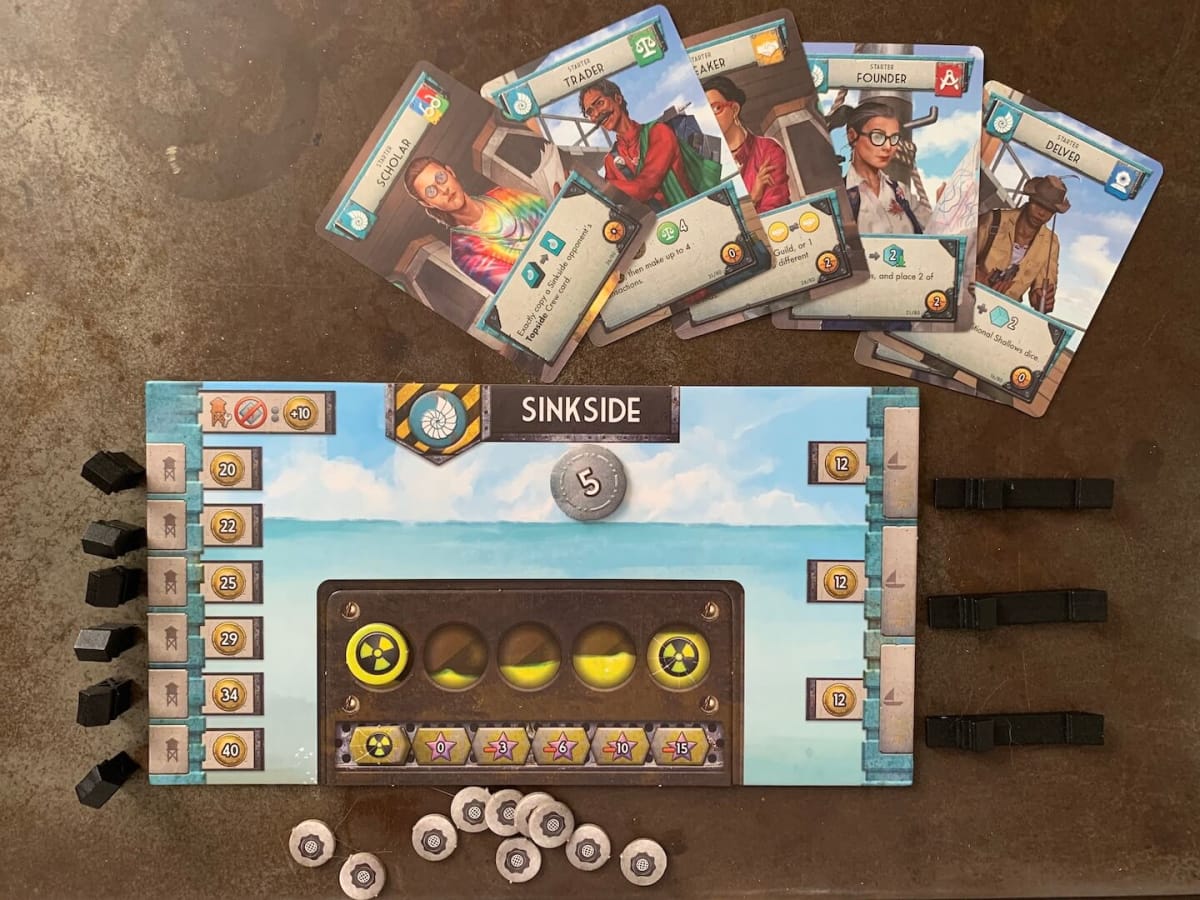
What makes this mechanic so innovative is that it's an option, not a necessity. Going skyside isn't necessarily needed to win the game. There are so many strategies and different modes of play that you could declare on your first turn that you're flipping over to skyside, you could flip halfway through your game, or you could never flip over to skyside, and in each case there are still paths to victory.
This gives the game a feeling of freedom that I really appreciate in complex board games. Not only can I do things differently from my opponents, I can approach the entire game, and my entire strategy toward it, in a fully customized way.
Playing Flotilla, when everyone at the table knows all the rules and everything they can do, is a joy. But knowing all the rules is more difficult than it sounds. With a large amount of interlocking systems and symbols meant to represent different actions a player can take, we found our first play through to be a slow one. When we play games with my group, I take on the burden (privilege?) of learning the game first and walking everyone through it. This usually doesn't present much of a problem, but with Flotilla, the onus of being the only one who knew how to play was overwhelming. If I were to do it again, I would have assigned my table mates the homework of at least leafing through the rulebook, and I suggest you do the same.
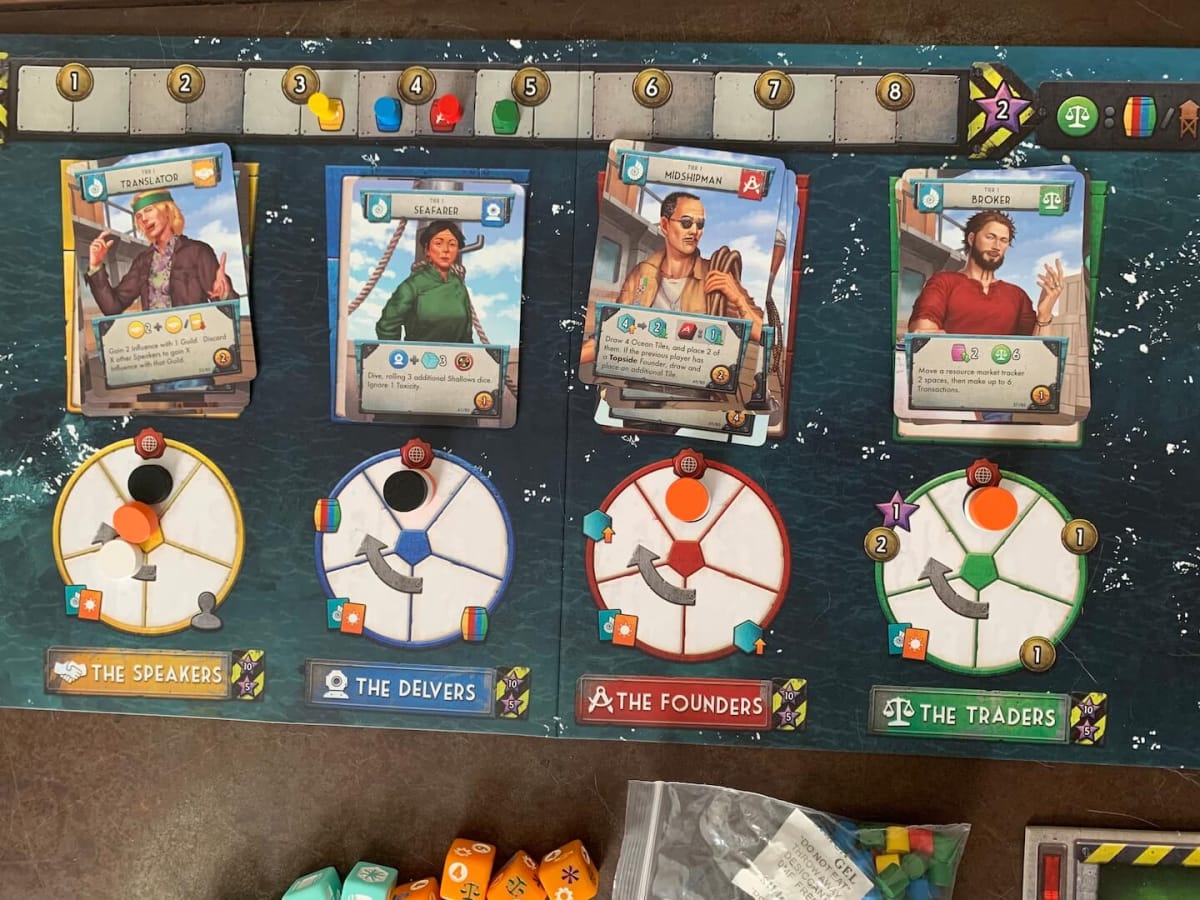
This complexity comes from the wide array of game mechanics on display, but once we understood how it all combined, Flotilla felt like a perfectly wound clock. On our second and third playthroughs of the game, with everyone having a good sense of how each action interacts with the board, our playtime shrank down to a respectable size (about 100 minutes), we each approached our turns with purpose, and we tried various paths toward victory.
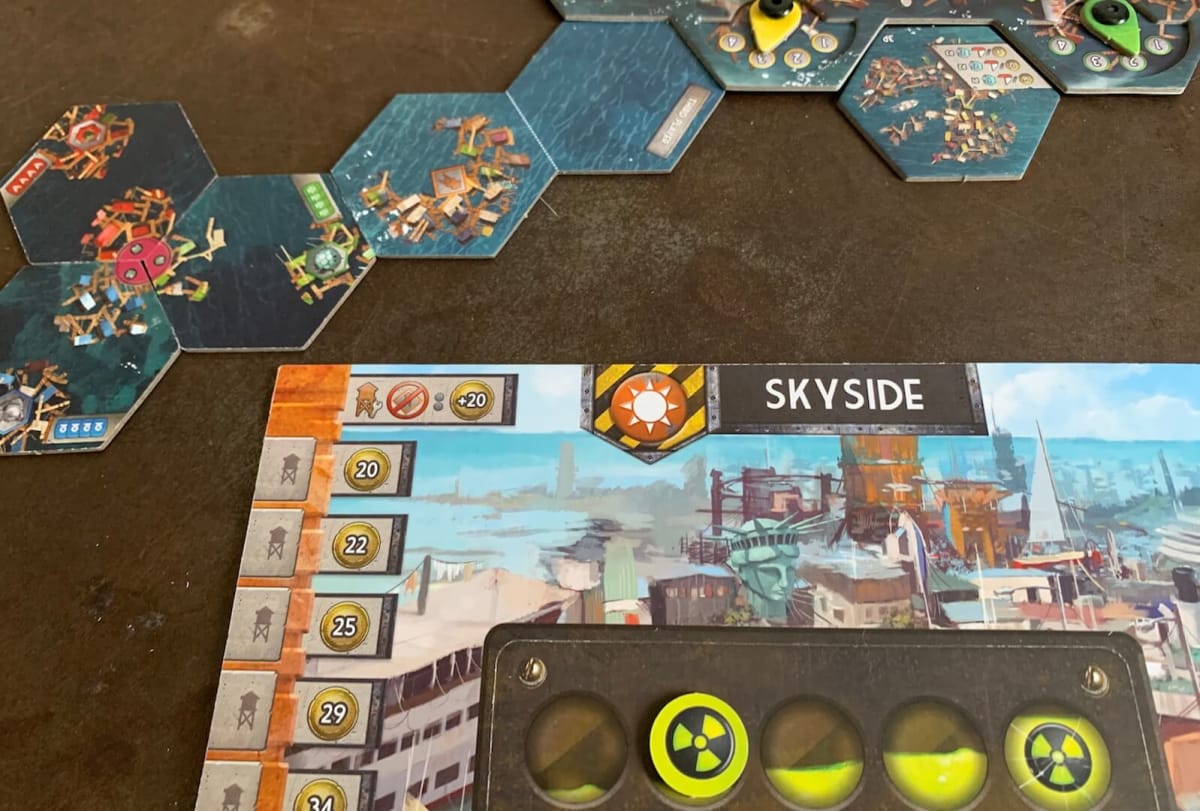
The Bottom Line
Though it feels complicated at first, Flotilla absolutely rewards players who take the time to dive in. With plenty to decide, and a bevy of actions to take on each turn, the game leaves itself open to player discovery. In this way, the theme perfectly matches the gameplay mechanics: just like in the sinkside mode of play, it's all about the thrill of discovery, and just like in the skyside mode of play, it's also all about reaping the benefits of risk and planning.
Get This Game If:
- You're looking for an immersive strategic experience
- You like the idea of having multiple paths to victory
- Your favorite movie is Waterworld
Avoid This Game If:
- You're daunted by a higher learning curve
- You have a small table (the game takes up a lot of space)
- You like your board games to clearly lay out one single way to win
The copy of Flotilla used in this review was provided by WizKids.
Review Summary
Have a tip, or want to point out something we missed? Leave a Comment or e-mail us at tips@techraptor.net
